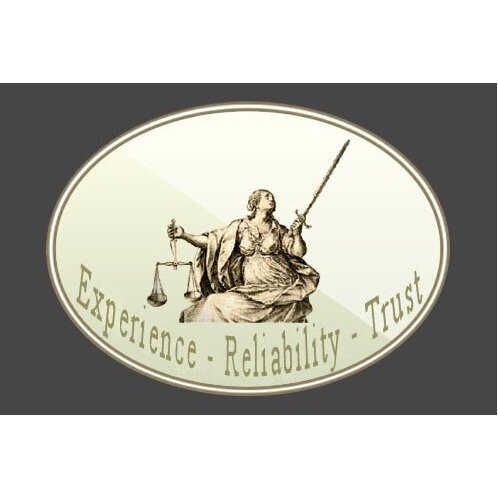Best Civil Rights Lawyers in Pattaya
Share your needs with us, get contacted by law firms.
Free. Takes 2 min.
List of the best lawyers in Pattaya, Thailand
Thailand Civil Rights Legal Questions answered by Lawyers
Browse our 1 legal question about Civil Rights in Thailand and read the lawyer answers, or ask your own questions for free.
- How much are court fees for a civil claim in a Thai small claims court?
- What fees would I need to pay if I submit a case to a small claims court in Thailand?
-
Lawyer answer
Applicable fees are based upon the claim's value and the particular court but typically do not exceed 200,000 THB. If the case is related to money or property, the court fee is 2% of the total claim amount with a...
Read full answer
About Civil Rights Law in Pattaya, Thailand
Civil rights law in Pattaya, Thailand, encompasses the protections and freedoms guaranteed to individuals, ensuring that all residents and visitors can enjoy equal treatment under the law. These rights are primarily derived from the Thai Constitution and various international human rights agreements to which Thailand is a signatory. In Pattaya, a city known for its vibrant expatriate community and tourism, civil rights issues can cover a wide range of topics, including discrimination, freedom of speech, privacy rights, and protection from unlawful detention.
Why You May Need a Lawyer
Individuals might seek legal assistance in civil rights issues for several reasons. Common situations include facing discrimination based on nationality, race, gender, or sexual orientation; encountering unlawful search or seizure by authorities; needing assistance in protecting privacy and data rights; and dealing with issues of freedom of expression, particularly when it intersects with local laws. Legal advice is also crucial for expatriates and tourists unfamiliar with Thai legal systems to ensure their rights are respected and upheld.
Local Laws Overview
The legal framework concerning civil rights in Pattaya is shaped by both national laws and regional enforcement practices. Key aspects include:
- The Thai Constitution, which guarantees basic rights such as equality before the law and protection of privacy.
- The Criminal Code and laws related to defamation, which can impact freedom of speech and expression.
- Various labor laws that protect against workplace discrimination.
- Immigration laws affecting the rights of expatriates and tourists.
- Legal protections available for the LGBTQ+ community, despite cultural and societal challenges.
Frequently Asked Questions
What are civil rights?
Civil rights are legal guarantees that protect individuals from discrimination and ensure equal access to legal and social benefits.
Am I protected under Thai civil rights laws as a foreigner?
Yes, both Thai nationals and foreigners are protected under the civil rights provisions of the Thai Constitution and relevant international agreements.
Can I file a lawsuit if I face discrimination at work in Pattaya?
Yes, you can file a complaint with the Ministry of Labor or pursue legal action if you experience discrimination at work.
How are my data privacy rights protected in Thailand?
The Personal Data Protection Act (PDPA) in Thailand ensures protection of personal information, but understanding its application can often require legal guidance.
Can I protest or organize public demonstrations in Pattaya?
While freedom of assembly is a recognized right, public gatherings must comply with the Public Assembly Act, and permits are typically required.
What should I do if detained by local police?
It is advisable to request legal assistance immediately and have someone inform your embassy if you are a foreign national.
Is same-sex marriage legal in Thailand?
Same-sex marriage is not legally recognized currently, although there are movements towards acknowledging civil partnerships.
Can legal proceedings be conducted in English?
Legal proceedings in Thailand are conducted in Thai, but an interpreter can be arranged, often necessitating legal support to manage this.
What recourse do I have if my freedom of speech is restricted?
Legal recourse is highly context-specific, and consulting with a lawyer to navigate restrictions and defenses is recommended.
How can I ensure my civil rights are protected as a tourist?
Familiarize yourself with local laws, and seek prompt legal assistance from reputable professionals or your country's consulate if rights violations occur.
Additional Resources
If you need further assistance or information, consider reaching out to the following:
- The Thai Lawyers Council, for professional legal services.
- The Bangkok office of the United Nations High Commissioner for Human Rights (OHCHR) for support related to human rights violations.
- Local non-governmental organizations, such as those focused on human rights advocacy and migrant worker protection.
- Your respective embassy or consulate for assistance and guidance, particularly if involved in legal issues as a foreigner.
Next Steps
If you require legal assistance concerning civil rights in Pattaya, consider taking the following steps:
- Identify the specific legal issue you need help with, such as discrimination, arrest, or data privacy concerns.
- Research and contact skilled attorneys who specialize in civil rights and who have experience working with expatriates or international cases.
- Prepare all necessary documentation and evidence related to your case to facilitate efficient legal consultation.
- Consult with your country’s embassy or consulate if you are a foreign national, as they can offer advisory and supportive services.
- Attend all scheduled legal appointments and proceedings, ensuring you have a qualified interpreter if needed.
Lawzana helps you find the best lawyers and law firms in Pattaya through a curated and pre-screened list of qualified legal professionals. Our platform offers rankings and detailed profiles of attorneys and law firms, allowing you to compare based on practice areas, including Civil Rights, experience, and client feedback.
Each profile includes a description of the firm's areas of practice, client reviews, team members and partners, year of establishment, spoken languages, office locations, contact information, social media presence, and any published articles or resources. Most firms on our platform speak English and are experienced in both local and international legal matters.
Get a quote from top-rated law firms in Pattaya, Thailand — quickly, securely, and without unnecessary hassle.
Disclaimer:
The information provided on this page is for general informational purposes only and does not constitute legal advice. While we strive to ensure the accuracy and relevance of the content, legal information may change over time, and interpretations of the law can vary. You should always consult with a qualified legal professional for advice specific to your situation.
We disclaim all liability for actions taken or not taken based on the content of this page. If you believe any information is incorrect or outdated, please contact us, and we will review and update it where appropriate.













